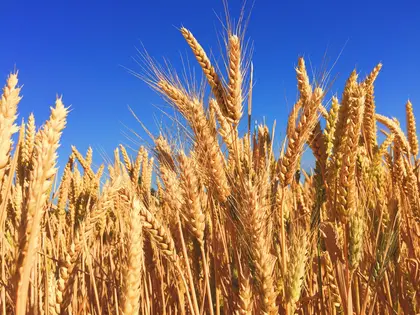The accord allowing for Ukrainian grain to be exported via the Black Sea, crucial in easing a global food crisis sparked by the Russian invasion, has been the subject of grueling talks to get Moscow to agree to its renewal.
Set to expire late Monday, the deal brokered by the United Nations and Turkey, signed by Moscow and Kyiv in July 2022, established a protected sea corridor allowing Ukraine's agricultural goods to reach global markets.
JOIN US ON TELEGRAM
Follow our coverage of the war on the @Kyivpost_official.
- Why is the deal at risk? -
On July 4, Russia warned that it saw "no grounds" to extend the current deal, criticizing alleged obstacles to its own exports of agricultural products.
Moscow had regularly threatened to quit the grain deal, complaining that secondary effects of Western restrictions on shipping and insurance as well as banks were blocking the export of its agricultural products.
On Tuesday, Russia launched a series of drone attacks that targeted grain facilities at a Ukrainian port in the Odesa region which houses three maritime terminals key to exporting grain.
- Can the deal be saved? -
Turkey's President Recep Tayyip Erdogan, who brokered the deal, has insisted that work on extending it continues with both Russian President Vladimir Putin and Ukrainian leader Volodymyr Zelensky.
"Mr Zelensky favours continuing the initiative, and Mr Putin has some suggestions," Erdogan told reporters Wednesday at the end of a two-day NATO summit in the Lithuanian capital Vilnius.

G7 Deal on $50 Billion Ukraine Loan Seen in October, Gentiloni Says
UN Secretary General Antonio Guterres supports removing hurdles to Russia exporting its fertilisers -- another element of the July 2022 deal that Moscow has regularly complained is not being respected -- due to Western sanctions blocking transactions by Russia's agricultural bank, his spokesman said.
Guterres sent Putin a letter on the subject on Tuesday.
- Has the deal worked? -
By ensuring the security of maritime cargo traffic in the Black Sea -- along with inspections to counter arms shipments -- the deal has allowed the export of nearly 33 million tons since it entered force on August 1, 2022, mostly wheat and maize.
The accord helped bring down prices that had shot higher following Russia's invasion of Ukraine and avoid hunger and famine in countries heavily dependent upon imports.
China was the biggest importer at 7.75 metric tons, followed by Spain at 5.6 million tons and Turkey at 3.1 million tons, according to the coordination center set up under the accord.
The deal also enabled the World Food Program to provide 725,000 tons to countries experiencing crises like Afghanistan, Ethiopia, Kenya, Somalia, Sudan and Yemen.
"A lack of food supplies produces knock-on effects for the lives of millions of people, particularly the poorest," said the UN.
- What is the current situation? -
Shipments have slowed ahead of the expiration of the deal, with only seven ships leaving the Ukrainian ports of Odesa and Chornomorsk between July 2 and 13.
That was the average number which left daily last October.
You can also highlight the text and press Ctrl + Enter






